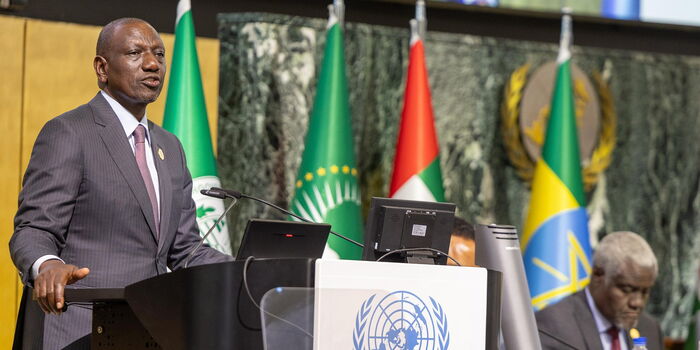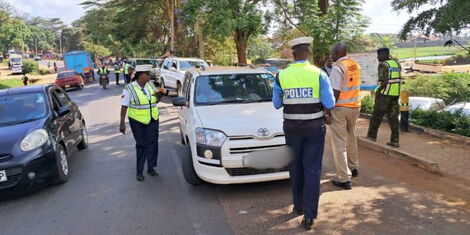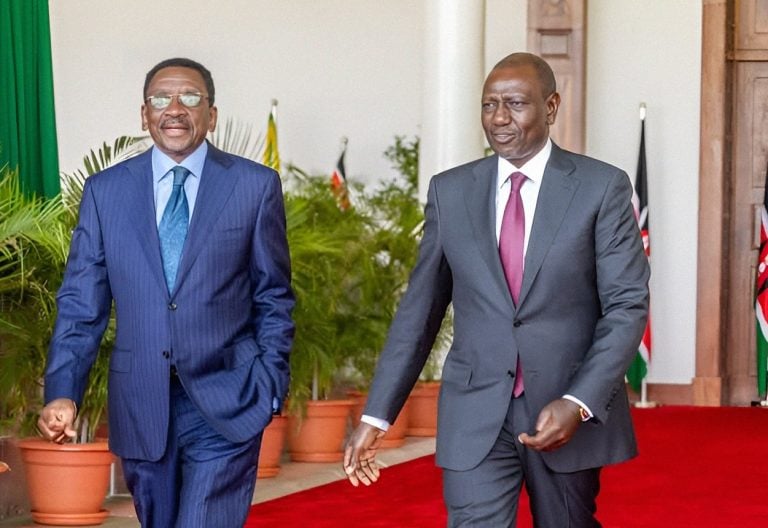
The Sudanese government has issued a strong warning to Kenya, accusing it of meddling in its internal affairs after hosting the Rapid Support Forces (RSF), a rebel faction engaged in a power struggle with the Sudanese military.
During a press conference on Monday, February 24, Sudan’s Deputy Foreign Affairs Minister, Hussein Al Fadil, announced that his country is considering imposing economic sanctions, including restricting Kenyan imports.
Al Fadil revealed that Sudan plans to lodge a formal complaint with the African Union (AU) and other international bodies, urging them to take action against President William Ruto’s administration.
“This stems from Kenya’s interference in Sudan’s domestic matters, including hosting events for the terrorist RSF militia, which threatens our nation’s security and unity,” Al Fadil stated.

He warned that Sudan’s response would be phased, with potential economic countermeasures, including trade restrictions.
According to Al Fadil, Kenya—under President Ruto’s leadership—has continuously interfered in Sudan’s affairs, aligning itself with the RSF since the conflict erupted. He further accused Ruto of having personal ties with RSF leader Mohammed Hamdan, describing Kenya’s involvement as hostile.
Al Fadil argued that Ruto’s actions contradict international agreements, including those under the United Nations, the African Union, and the Intergovernmental Authority on Development (IGAD).
“Kenya’s claims of promoting peace in Sudan are deceptive. How can a country host the very forces fueling the war while pretending to advocate for stability?” Al Fadil questioned.
His remarks follow the signing of a political agreement in Nairobi by the RSF just two days earlier, aimed at strengthening its influence in Sudan.
Meanwhile, Ruto’s decision to host RSF representatives has sparked criticism both locally and globally, with some accusing him of mismanaging Kenya’s role in the Sudanese conflict.
The RSF and Sudanese military have been locked in a brutal war since mid-2023, resulting in over 30,000 deaths and the displacement of 14 million people.







